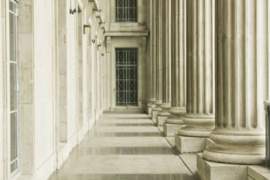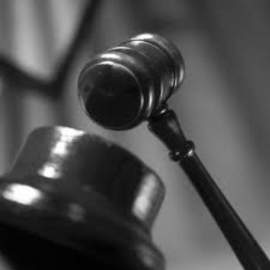
Definition of Censorship

Popular In Constitution
Purpose Of Lifetime Appointment And Pros And Cons Enumerated Powers Bicameral Legislature Background Article 3 Of The Constitution We The People 1st Amendment Who Wrote The Constitution Judicial Review Equal Protection Clause 5th Amendment 10th Amendment Three Fifths Compromise
As the First Amendment to the Constitution of the United States, the issue of censorship is one that resonates deeply within a majority of the citizens of the United States. Due to the fact that it exists as such a multifaceted issue, comprised not only of ethical and legal implications but religious as well, the ramifications of allowing a populace the freedom of expression is a multifarious issue.
The separation of church and state was introduced in Article 6 of the Constitution of the United States with the goal of eradicating censorship by preventing the United States from becoming a theocracy, thus disallowing any institution the ability to create moral parameters by which to censor the expression of any of its citizens. However, many cases have been brought before the United States Supreme Court that have presented complications regarding the implications of certain expression.
Despite the appointment of the American Civil Liberties Union (ACLU), a national lobby that protects citizens of the United States from censorship, there exist numerous instances where the freedom of expression has proved to be not only hurtful, but also dangerous.
The Anti-Defamation League (ADL), a lobby that investigates and prosecutes hate speech, works closely with the United States Supreme Court. While the First Amendment ensured the right to freedom of expression to all citizens of the United States, delineation between the cessation of violent, racist, sexist, and homophobic hate speech and censorship has yet to be established.
In 1965, the case of Tinker vs. Des Moines was brought before the United States Supreme Court. John Tinker, a 15 year old from Des Moines, maintained that his high school had unjustly suspended both he and his sister because they had chosen to wear black armbands to school in protest of the Vietnam War.
In an attempt to dispute the alleged censorship practiced by his school, he had claimed that the suspension was in direct violation of his First Amendment right. The United States Supreme Court ruled in favor of the Tinkers, explaining that as a result of the absence of both violence and disturbance in their action, their expression was indeed Constitutional. The United States Supreme Court added that the censorship imposed by the school was both unjust and unmerited.
However, the United States Supreme Court has approved of instances in which censorship is permissible. The establishment of criminal charges, such as the disturbance of peace as well as the incitement of a riot, are instances in which freedom of expression may lead to potential harm or danger.
On an international level, the public denial of the Holocaust is considered to be a crime in many European countries, such as France, Germany, and Austria. However, despite protest from the ADL, the United States Supreme Court has ruled that public denial of the Holocaust is within the scope of the First Amendment, and as a result, free of censorship. However, this anomaly only further illustrates the ambiguity of the First Amendment.
NEXT: What Is Contracts Clause





















